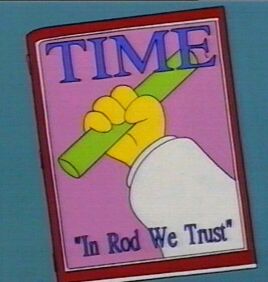With $787 billion in stimulus, $700 billion in TARP money, deficits projected to hit $1.8 trillion, the Federal Reserve cutting rates to effectively nothing, and Neil Barofsky, the government’s inspector general of TARP estimating a $23.7 trillion total risk exposure to the financial crisis, it is only natural to worry about inflation. Of course, that $23.7 trillion figure would require absolutely everything going wrong, but recent events have surely convinced us that betting on the modal result and ignoring the other possible outcomes is reckless, a fact that seems destined to be rediscovered every few years.
 Inflation, of course, is simply an increase in the money supply that outpaces an increase in the size of the economy (actually, that’s stagflation, but stagflation is really the pernicious aspect of inflation). The purpose of money is to facilitate transactions, and as the number of transactions increases the size of the money supply should increase accordingly. Now, of course, the economy has shrunk even as all this stimulus is being thrown at the market, and we are still worrying about deflation. This implies one of two things, either that inflation is going to come later, or that the inflation has been avoided.
Inflation, of course, is simply an increase in the money supply that outpaces an increase in the size of the economy (actually, that’s stagflation, but stagflation is really the pernicious aspect of inflation). The purpose of money is to facilitate transactions, and as the number of transactions increases the size of the money supply should increase accordingly. Now, of course, the economy has shrunk even as all this stimulus is being thrown at the market, and we are still worrying about deflation. This implies one of two things, either that inflation is going to come later, or that the inflation has been avoided.
I fall in the inflation avoidance camp. In a modern economy, credit serves almost as well as cash, and we are now witnessing a massive evaporation of credit. The appetite for securitization products that created a pool of liquidity that so many lenders were counting on turned out to be a mile wide and an inch deep. Now that every lender in the country is reining in its operations, and many people are unwilling to borrow or incapable of borrowing against their houses, trillions of dollars of credit that used to be bouncing around the financial system no longer are. Next to this unprecedented deleveraging of America, Congress has finally managed to make a couple trillion dollars look like a small number.
Of course, it never hurts to have a backup plan in the form of inflation-protected investments. Our choices include gold, TIPS, and land. For our fructivorous purposes, however, we want an investment that produces a decent return with or without inflation. Gold or other precious metals has no baseline return, or even a negative one when counting storage, insurance, etc. TIPS pay a low rate but increase their principal value alongside inflation, which is better than gold, but I still think there are more potential opportunities in the land category.
In terms of land, obviously single family homes are far too speculative as events have indicated. In fact, using Seth Klarman’s definition that a speculation, as opposed to an investment, produces no current or potential cash flow to its owner, single family homes are not an investment at all. Rental properties are closer, but I think the ideal land for an inflation hedge is land that produces something: farmland, mines, oil fields, or timber. Any of these has advantages and disadvantages, but I’m going with timber, and with Rayonier in particular.
 Rayonier owns 2.6 million acres of timberland, and also produces lumber and wood products, and wood fibers for hygiene products and also specialty fibers for industrial use running the gamut from packaging to LCD displays. Naturally the decline in demand for construction materials has hurt them, but even at this low ebb of their business, they have managed to squeeze out at least $25 million in earnings per quarter lately. Their free cash flows are approximately equal to their dividends, currently yielding 5%. This puts them at risk of a dividend cut, but for inflation hedging purposes this is not really relevant, as it is better to keep the money in the firm to buy more timberland with in that event.
Rayonier owns 2.6 million acres of timberland, and also produces lumber and wood products, and wood fibers for hygiene products and also specialty fibers for industrial use running the gamut from packaging to LCD displays. Naturally the decline in demand for construction materials has hurt them, but even at this low ebb of their business, they have managed to squeeze out at least $25 million in earnings per quarter lately. Their free cash flows are approximately equal to their dividends, currently yielding 5%. This puts them at risk of a dividend cut, but for inflation hedging purposes this is not really relevant, as it is better to keep the money in the firm to buy more timberland with in that event.
The advantage of timberland is that when, as now, demand is down, producers can simply decline to harvest. Unlike farmland, and especially mines and oilfields, not harvesting for a time allows the product of the land, trees in this case, to grow and produce a greater yield when conditions return to normalcy. And given their vertically integrated fiber business, they are not wholly dependent on the construction market.
 Rayonier also is getting a nice little bonus from the tax system this year from black liquor, a byproduct of the fiber refining process that contains the nonfibrous parts of the wood and the leftover chemicals used in the process. The refining of wood into wood pulp for their fiber business produces some nice long usable fibers, and a great deal of black slime. A highly toxic black slime. When dried, a highly flammable black slime. When dried and mixed with a bit of diesel fuel, a highly lucrative black slime, since the government pays a subsidy of 50 cents a gallon for its use under an alternative energy program. The program expires at the end of this year, and there is a movement in Congress to cut off the eligibility of pulp mills immediately, on the grounds that black liquor is not really an alternative fuel. (It has been used since the 30s and nearly every pulp mill uses it, meaning that it is not an “alternative” to anything.) To date this year, Rayonier has benefited $86 million from this subsidy, and there are two more quarters. Since the program will expire if not extended (which extension is not outside the realm of possibility), we cannot count on this $43 million a quarter as part of the firm’s operating income, but it is a nice little enhancement that will cushion the blow of the business slowdown for the moment.
Rayonier also is getting a nice little bonus from the tax system this year from black liquor, a byproduct of the fiber refining process that contains the nonfibrous parts of the wood and the leftover chemicals used in the process. The refining of wood into wood pulp for their fiber business produces some nice long usable fibers, and a great deal of black slime. A highly toxic black slime. When dried, a highly flammable black slime. When dried and mixed with a bit of diesel fuel, a highly lucrative black slime, since the government pays a subsidy of 50 cents a gallon for its use under an alternative energy program. The program expires at the end of this year, and there is a movement in Congress to cut off the eligibility of pulp mills immediately, on the grounds that black liquor is not really an alternative fuel. (It has been used since the 30s and nearly every pulp mill uses it, meaning that it is not an “alternative” to anything.) To date this year, Rayonier has benefited $86 million from this subsidy, and there are two more quarters. Since the program will expire if not extended (which extension is not outside the realm of possibility), we cannot count on this $43 million a quarter as part of the firm’s operating income, but it is a nice little enhancement that will cushion the blow of the business slowdown for the moment.
However, without counting the black liquor subsidy Rayonier’s PE ratio is hovering around 20, which is generally too high to qualify as a low-hanging fruit considering the lack of growth (not that a fructivore lays too much emphasis in growth anyway given the difficulty of predicting the future). But as an inflation hedge, timber companies like Rayonier are definitely good places to look into.
 Compass Minerals operates a number of salt mines, and sells rock salt for road de-icing and more refined salt for industrial purposes and consumption by humans and animals. They also produce potash fertilizers. Compass claims to be one of the lowest cost salt providers in the nation, and in the last three years has produced excellent earnings growth, although last year’s high earnings may have something to do with the high price of salt last year.
Compass Minerals operates a number of salt mines, and sells rock salt for road de-icing and more refined salt for industrial purposes and consumption by humans and animals. They also produce potash fertilizers. Compass claims to be one of the lowest cost salt providers in the nation, and in the last three years has produced excellent earnings growth, although last year’s high earnings may have something to do with the high price of salt last year. Antitrust laws in the US forbid generally any attempt to monopolize, and this includes attempting to maintain a monopoly by any means other than competition on the merits, including a refusal to deal with competitors. Assuming that some clever economist expert witness can conclude that this denial will harm competition, 20th Century Fox can still easily claim that they have the legitimate business reason of protecting the perceived value of their own products in the marketplace. There is broad support for the view that antitrust law permits holders of intellectual property to unilaterally refuse to license it. After all, the Constitution provides for temporary monopolies for patents and copyrights, and although this does not provide a blanket immunity for antitrust actions (just ask Microsoft), most legal commentators allow them to retain that monopoly as long as they do not try to leverage it into a non-monopolistic area, although the 9th Circuit has ruled that even this is permissible unless the owner is “not actually motivated by protecting its IP rights.†Since they have a legitimate business reason, which they seem to, they should be in a fine position for this suit. There is caselaw to suggest that there is a heightened standard for situations where a monopolist refuses to sell a product to one competitor that it makes available to others, or has done business with a competitor and then stops, but this seems to be more of an indicator of monopolistic action than anything imposing a higher legal standard, and a legitimate business reason will still defeat it. There is also case law to the effect that there is no difference between selectively granting a license and refusing to grant it all, so no worries to Fox and Universal on that front.
Antitrust laws in the US forbid generally any attempt to monopolize, and this includes attempting to maintain a monopoly by any means other than competition on the merits, including a refusal to deal with competitors. Assuming that some clever economist expert witness can conclude that this denial will harm competition, 20th Century Fox can still easily claim that they have the legitimate business reason of protecting the perceived value of their own products in the marketplace. There is broad support for the view that antitrust law permits holders of intellectual property to unilaterally refuse to license it. After all, the Constitution provides for temporary monopolies for patents and copyrights, and although this does not provide a blanket immunity for antitrust actions (just ask Microsoft), most legal commentators allow them to retain that monopoly as long as they do not try to leverage it into a non-monopolistic area, although the 9th Circuit has ruled that even this is permissible unless the owner is “not actually motivated by protecting its IP rights.†Since they have a legitimate business reason, which they seem to, they should be in a fine position for this suit. There is caselaw to suggest that there is a heightened standard for situations where a monopolist refuses to sell a product to one competitor that it makes available to others, or has done business with a competitor and then stops, but this seems to be more of an indicator of monopolistic action than anything imposing a higher legal standard, and a legitimate business reason will still defeat it. There is also case law to the effect that there is no difference between selectively granting a license and refusing to grant it all, so no worries to Fox and Universal on that front. Copper penny enthusiasts
Copper penny enthusiasts Inflation, of course, is simply an increase in the money supply that outpaces an increase in the size of the economy (actually, that’s stagflation, but stagflation is really the pernicious aspect of inflation). The purpose of money is to facilitate transactions, and as the number of transactions increases the size of the money supply should increase accordingly. Now, of course, the economy has shrunk even as all this stimulus is being thrown at the market, and we are still worrying about deflation. This implies one of two things, either that inflation is going to come later, or that the inflation has been avoided.
Inflation, of course, is simply an increase in the money supply that outpaces an increase in the size of the economy (actually, that’s stagflation, but stagflation is really the pernicious aspect of inflation). The purpose of money is to facilitate transactions, and as the number of transactions increases the size of the money supply should increase accordingly. Now, of course, the economy has shrunk even as all this stimulus is being thrown at the market, and we are still worrying about deflation. This implies one of two things, either that inflation is going to come later, or that the inflation has been avoided. Rayonier owns 2.6 million acres of timberland, and also produces lumber and wood products, and wood fibers for hygiene products and also specialty fibers for industrial use running the gamut from packaging to LCD displays. Naturally the decline in demand for construction materials has hurt them, but even at this low ebb of their business, they have managed to squeeze out at least $25 million in earnings per quarter lately. Their free cash flows are approximately equal to their dividends, currently yielding 5%. This puts them at risk of a dividend cut, but for inflation hedging purposes this is not really relevant, as it is better to keep the money in the firm to buy more timberland with in that event.
Rayonier owns 2.6 million acres of timberland, and also produces lumber and wood products, and wood fibers for hygiene products and also specialty fibers for industrial use running the gamut from packaging to LCD displays. Naturally the decline in demand for construction materials has hurt them, but even at this low ebb of their business, they have managed to squeeze out at least $25 million in earnings per quarter lately. Their free cash flows are approximately equal to their dividends, currently yielding 5%. This puts them at risk of a dividend cut, but for inflation hedging purposes this is not really relevant, as it is better to keep the money in the firm to buy more timberland with in that event. Rayonier also is getting a nice little bonus from the tax system this year from black liquor, a byproduct of the fiber refining process that contains the nonfibrous parts of the wood and the leftover chemicals used in the process. The refining of wood into wood pulp for their fiber business produces some nice long usable fibers, and a great deal of black slime. A highly toxic black slime. When dried, a highly flammable black slime. When dried and mixed with a bit of diesel fuel, a highly lucrative black slime, since the government pays a subsidy of 50 cents a gallon for its use under an alternative energy program. The program expires at the end of this year, and there is a movement in Congress to cut off the eligibility of pulp mills immediately, on the grounds that black liquor is not really an alternative fuel. (It has been used since the 30s and nearly every pulp mill uses it, meaning that it is not an “alternative” to anything.) To date this year, Rayonier has benefited $86 million from this subsidy, and there are two more quarters. Since the program will expire if not extended (which extension is not outside the realm of possibility), we cannot count on this $43 million a quarter as part of the firm’s operating income, but it is a nice little enhancement that will cushion the blow of the business slowdown for the moment.
Rayonier also is getting a nice little bonus from the tax system this year from black liquor, a byproduct of the fiber refining process that contains the nonfibrous parts of the wood and the leftover chemicals used in the process. The refining of wood into wood pulp for their fiber business produces some nice long usable fibers, and a great deal of black slime. A highly toxic black slime. When dried, a highly flammable black slime. When dried and mixed with a bit of diesel fuel, a highly lucrative black slime, since the government pays a subsidy of 50 cents a gallon for its use under an alternative energy program. The program expires at the end of this year, and there is a movement in Congress to cut off the eligibility of pulp mills immediately, on the grounds that black liquor is not really an alternative fuel. (It has been used since the 30s and nearly every pulp mill uses it, meaning that it is not an “alternative” to anything.) To date this year, Rayonier has benefited $86 million from this subsidy, and there are two more quarters. Since the program will expire if not extended (which extension is not outside the realm of possibility), we cannot count on this $43 million a quarter as part of the firm’s operating income, but it is a nice little enhancement that will cushion the blow of the business slowdown for the moment. USEC Inc. has an interesting one; a loan guarantee from the Department of Energy that they applied for in order to construct a new facility. USEC is currently the only uranium refinery operating in the United States. It turns mined uranium into low enriched uranium for use in nuclear power plants, and presently employs archaic and inefficient gaseous diffusion technology. Ironically, one of the biggest inputs to producing fuel for electric plants is electricity; 65% of USU’s operating costs come from electricity, and centrifuge technology requires an impossible-seeming 95% less power. For this reason, most nuclear fuel enrichers have switched over to centrifuge technology, and USU wants to open a new plant in order to join them.
USEC Inc. has an interesting one; a loan guarantee from the Department of Energy that they applied for in order to construct a new facility. USEC is currently the only uranium refinery operating in the United States. It turns mined uranium into low enriched uranium for use in nuclear power plants, and presently employs archaic and inefficient gaseous diffusion technology. Ironically, one of the biggest inputs to producing fuel for electric plants is electricity; 65% of USU’s operating costs come from electricity, and centrifuge technology requires an impossible-seeming 95% less power. For this reason, most nuclear fuel enrichers have switched over to centrifuge technology, and USU wants to open a new plant in order to join them. A yield hog is, simply enough, an investor who is dazzled by high yield investments. A big fat coupon impresses investors and also serves to erase a few embarrassing mistakes. In fact, an investment that produces a large cash flow that is reasonably safe is the kind of low-hanging fruit that the investor should be seeking out. The emphasis, though, is on “reasonably safe,” whereas a yield hog sees “large cash flow” and stops reading. They are willing to reach for yield, and either get it by ignoring established standards of investing safety, or worse, they make up new standards that show that what they’re doing is now safe.
A yield hog is, simply enough, an investor who is dazzled by high yield investments. A big fat coupon impresses investors and also serves to erase a few embarrassing mistakes. In fact, an investment that produces a large cash flow that is reasonably safe is the kind of low-hanging fruit that the investor should be seeking out. The emphasis, though, is on “reasonably safe,” whereas a yield hog sees “large cash flow” and stops reading. They are willing to reach for yield, and either get it by ignoring established standards of investing safety, or worse, they make up new standards that show that what they’re doing is now safe.